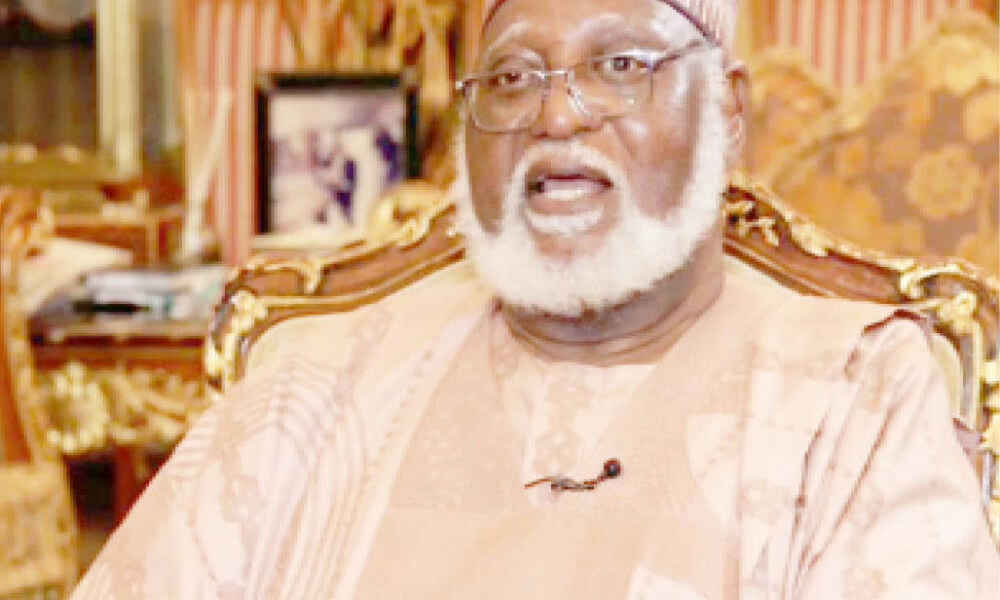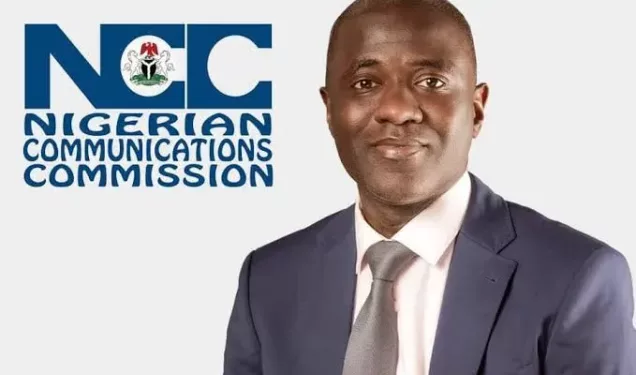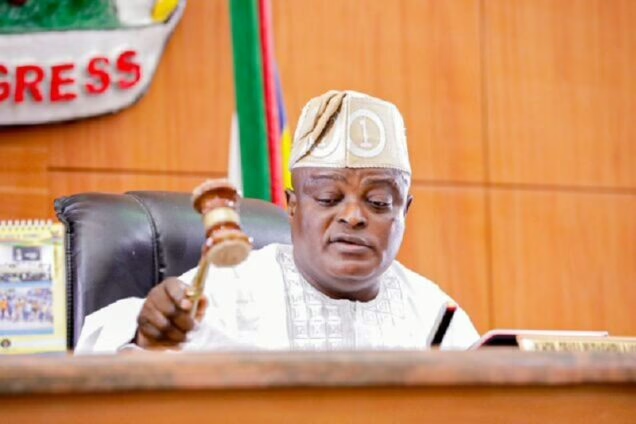…Charts course for future collaboration
![]()
![]()


•Chinese President Xi Jinping (l), in a trilateral meeting in Paris with French President Emmanuel Macron (m) and European Commission President, Ursula von der Leyen (r).
Chinese President Xi Jinping’s state visits to France, Serbia and Hungary have consolidated China’s relations with the three European countries and relaunched China-European Union cooperation, Chinese Foreign Minister, Wang Yi, has said.
Wang, also a member of the Political Bureau of the Communist Party of China (CPC) Central Committee, made the remarks during a press briefing in Beijing, referring to Xi’s Europe trip as a journey to carry forward friendship, enhance mutual trust, boost confidence and chart the course for the future.
He noted that during Xi’s state visit to France, the Chinese president proposed to uphold independence and jointly prevent a new Cold War or bloc confrontation; adhere to mutual understanding and jointly promote harmonious coexistence in a colorful world; stick to proceeding from a long-term perspective to jointly push for an equal and orderly multipolar world; and uphold mutual benefit and jointly oppose “de-coupling.”
The heads of state of China and France reached a number of consensuses on further developing bilateral relations, agreed to consolidate the strategic stability of bilateral ties, tap the broad potential of mutually beneficial cooperation, accelerate people-to-people exchanges, and build greater consensus on global cooperation, Wang added.
During the visit to Serbia, President Xi and Serbian President Aleksandar Vucic agreed to build a China-Serbia community with a shared future in the new era, and Xi also announced China’s initial practical measures to support the building of the community.
Noting the decision marks a breakthrough in the building of a community with a shared future in Europe, Wang said it will surely become a new milestone in the history of China-Serbia relations and help the two countries speed up their respective modernization process.
During the visit to Hungary, Xi expressed willingness to take the opportunity of establishing China-Hungary all-weather comprehensive strategic partnership for the new era to inject new and strong impetus into bilateral cooperation, adding that Hungary is welcomed to be China’s companion on its path to Chinese modernization.
China, Wang also said, is willing to work with Hungary to take Xi’s visit as an opportunity to write new stories of China-Hungary all-weather comprehensive strategic partnership for the new era, and open a new chapter of mutually beneficial cooperation in a Golden Voyage.
In a trilateral meeting in Paris with French President Emmanuel Macron and European Commission President Ursula von der Leyen, Xi said there is neither geopolitical conflict, nor fundamental conflict of interests between China and the EU.
Xi pointed out that the relationship does not target any third party, nor should it be dependent on or dictated by any third party, and that China and the EU should continue to see each other as partners, and stay committed to dialogue and cooperation.
On the Ukraine crisis, Xi clarified that China did not create the Ukraine crisis, nor is it a party to it, but rather, China has been working vigorously to facilitate talks for peace all along.
During Xi’s visit to France, China and France agreed to take the Paris Olympic Games as an opportunity to advocate for a global ceasefire and cessation of hostilities during the Games, to speak out for the peaceful settlement of hotspot issues, and to contribute to the construction of a world of lasting peace and universal security.
Taiwan’s WHA Participation Must Fall Under One-China Principle –Chinese Govt
The Chinese Government, has restated that there is but one China in the world.
An anonymous Chinese government official, said the government of the People’s Republic of China is the sole legal government representing the whole of China.
The official said: “The government of the People’s Republic of China is the sole legal government representing the whole of China. Taiwan is an inalienable part of China’s territory. China’s position on the Taiwan region’s participation in the activities of international organizations, including the World Health Organisation (WHO), is consistent and clear, that is, this must be handled under the one-China principle, which is also a fundamental principle demonstrated by the UNGA Resolution 2758 and World Health Assembly (WHA) Resolution 25.1.
“China’s Taiwan region, unless given approval by the Central Government, has no basis, reason or right to participate in the WHA. After coming into power in 2016, the DPP has refused to recognize the 1992 consensus and been hell-bent on the separatist stance of “Taiwan independence.” As a result, the political foundation for the Taiwan region to participate in the WHA no longer exists. Hence, China has decided not to approve the Taiwan region’s participation in this year’s WHA. This decision has sufficient reason and a solid legal basis. It’s not just about upholding the one-China principle, but also about the sanctity and authority of relevant UNGA and WHA resolutions.”
The official also said for quite some time, the DPP authorities and certain country have been deliberately distorting and challenging UNGA Resolution 2758, trumpeting the notion that Taiwan’s status is undetermined, and advocating support for Taiwan’s participation in the United Nations multilateral forums, including the WHA.
“These moves mislead international public opinion and challenge the one-China consensus among the international community. They trample on the international law and basic norms governing international relations, and seek to turn back the wheel of history. Such attempts will not succeed.
“The DPP authorities and some countries claim that Taiwan’s absence from the WHA will cause a “gap” in global anti-epidemic efforts and use it as an excuse to demand “Taiwan’s meaningful participation” in the WHO. That’s a politically-driven and completely false claim. The Chinese Central Government has made proper arrangement for the Taiwan region’s participation in global health affairs on the condition that the one-China principle is upheld. Over the past year alone, medical and technical experts from China’s Taiwan region applied for participation in WHO technical activities 21 times, which involved 24 participants, and all the applications were approved by the Chinese Central Government. There is an International Health Regulations Contact Point in the Taiwan region for it to promptly access and report to the WHO concerning information related to health emergencies. Facts fully reflect that the Chinese Central Government has every sincerity and has taken credible and active measures to address the health issues that our compatriots in Taiwan care about, and that their rights to health are duly protected.
“The One-China principle is where global opinion trends and the arc of history bends. China’s decision of not letting the Taiwan region participate in this year’s WHA has received wide support and understanding from the international community. Challenging the one-China principle will end up nowhere and turning back the wheel of history will not succeed. Any attempt to play the “Taiwan card” and use Taiwan to contain China will only be met with firm opposition from the international community and is doomed to failure,” the Chinese Government Official also said.
Who is Really Betting Against America?
In her recent trip to China, U.S. Treasury Secretary, Janet Yellen, repeatedly blasted Beijing’s industrial “overcapacity” for threatening the global economy.
But her accusation deliberately ignored the most basic laws of market economy: On the supply side, it is innovation, cost-efficient manufacturing and quality products that make China’s clean sector stand out, not government subsidies; On the demand side, these clean products are urgently needed in great amount, not just by developing countries but also by advanced economies like the United States to reorient their economies toward greener growth.
When China is making the world cleaner by providing quality electric vehicles (EVs) to global consumers, what has the United States been doing other than pointing the finger at China? Unfortunately, it is creating many dark clouds that are looming over workers and businesses in its own country and around the world.
Americans used to pride themselves on open market and free trade, and many still do today. But now it seems that U.S. policymakers are increasingly deviating from the path, partly fueled by the resurgence of populism at home.
From the “America First” policy to the “Buy America” agenda, the country does not even bother to obfuscate its shift toward protectionism. Under the CHIPS and Science Act and the Inflation Reduction Act, the Biden administration has earmarked about 30 billion U.S. dollars in subsidies for advanced semiconductor manufacturing, with the aim of moving cutting-edge chip R&D and manufacturing to America.
For the rest of the world, when they see the United States stepping away from its leadership of a functional multilateral trading system, they might lose confidence and turn more inward-looking as well, which could eventually cause the entire system to crumble.
The United States likes to describe its relations with China as “competitive when it should be.” But when it really comes to areas with intense competition, America’s tactics are not aimed at making itself better, but rather to take down the other.
From the arbitrary restrictions on Huawei, to the attempt of putting a stranglehold on TikTok, the United States is proving with concrete steps that it is no longer interested in fair competition. How is Huawei a national security risk when it openly announced its readiness to sign a “no-backdoor” agreement with any country? And how is TikTok a national security risk when U.S. President Joe Biden himself happily made his TikTok debut earlier this year?
This farce only shows the world more clearly how far the United States is willing to go to protect its interests with the self-invented “rules” and “order.” It looks like its policy should be rephrased into “double standards when it should be.”
—Culled from Xinhua News Agency Editorial of 10th May, 2024.











